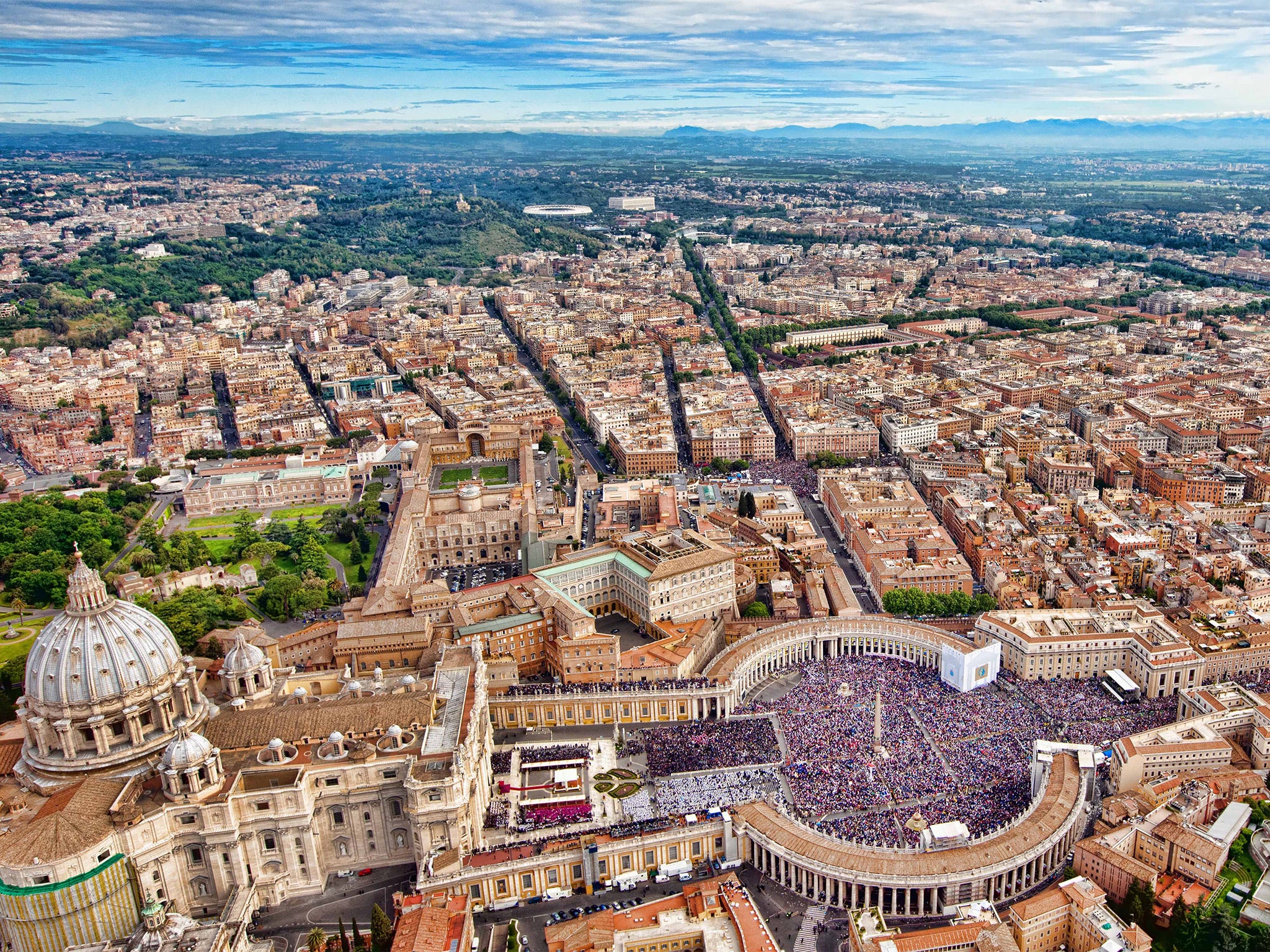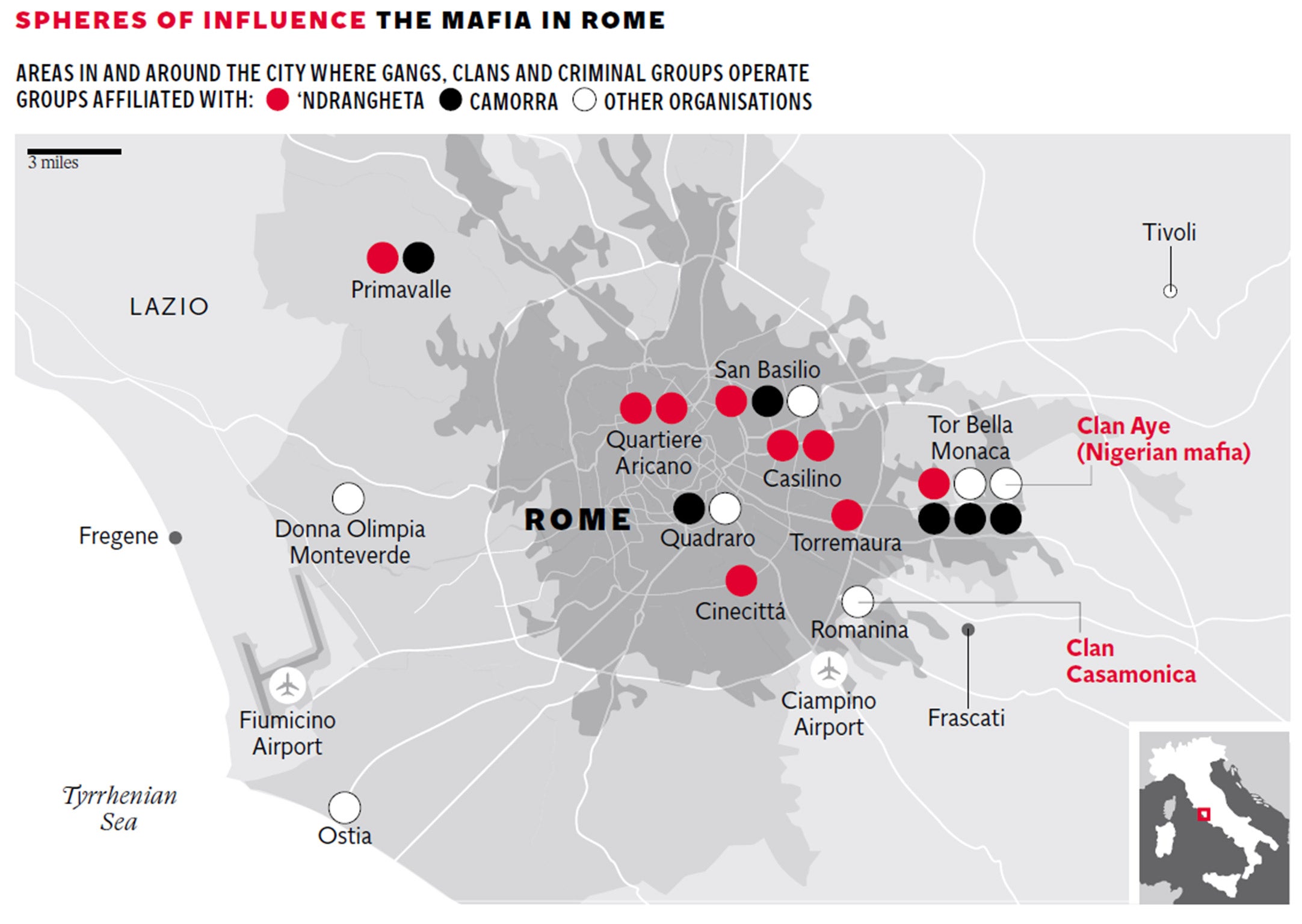Rome's notorious mafia families are putting their rivalries aside to work together
Investigation reveals just how Italy’s capital is controlled by organised crime. Michael Day reports

Your support helps us to tell the story
From reproductive rights to climate change to Big Tech, The Independent is on the ground when the story is developing. Whether it's investigating the financials of Elon Musk's pro-Trump PAC or producing our latest documentary, 'The A Word', which shines a light on the American women fighting for reproductive rights, we know how important it is to parse out the facts from the messaging.
At such a critical moment in US history, we need reporters on the ground. Your donation allows us to keep sending journalists to speak to both sides of the story.
The Independent is trusted by Americans across the entire political spectrum. And unlike many other quality news outlets, we choose not to lock Americans out of our reporting and analysis with paywalls. We believe quality journalism should be available to everyone, paid for by those who can afford it.
Your support makes all the difference.Families from different regions – and even different countries – are living and working together peacefully in Rome. It sounds like social nirvana as criminal clans from Italy’s most notorious mafia families dispense with turf wars and amicably carve up sections of Italy’s money-laundering capital.
A total of 45 gangs – from the ’Ndrangheta of Calabria, the Camorra from Naples, various Rome crime families and even Nigerian gangsters – are collaborating in the corruption-mired city, according to a report compiled by Rome’s police headquarters.
“Rome is the real money-laundering centre for the money earned from drug trafficking, arms, extortion, illegal money lending and prostitution,” says the report. It notes that “organised crime in Rome does not have the same characteristics as in other Italian regions such as Sicily, Calabria and Campania, where you see an almost military presence of the various mafia groups. In the capital, you see different mafia organisations in cahoots with local crime groups.”

The spotlight fell on these powerful local crime families last week, with the high-profile funeral of the boss of the Casamonica clan, Vittorio Casamonica. The spectacle, in which hundreds of well-wishers blocked the streets, and a helicopter scattered rose petals on the mobster’s horse-drawn hearse while a band played the music from Francis Ford Coppola’s The Godfather, was described by the Northern League’s leader, Matteo Salvini, as a “planetary embarrassment” for Italy.
Afraid of being caught out a second time, Rome police, having confiscated the helicopter pilot’s licence for flying low over the city without permission, arrived in numbers at a follow-up mass for the mobster in Rome this morning, which this time proved a low-key affair.
But the threat posed by the Casamonica family, which arrived in Rome from Abruzzo 100 or so years ago, has been underlined by subsequent attacks and intimidation against several journalists reporting the funeral.
The Casamonica mob, which is thought to rake in millions from illegal money lending, drugs and prostitution, collaborates with gangs in the south and east of Rome linked to the ’Ndrangheta and Camorra groups.
The police report, passed to La Stampa newspaper, underlines a prior warning from the city’s chief prosecutor, Giuseppe Pignatone, that “complexity” was now the characteristic of organised crime in Rome. Earlier this year, magistrates closed a bar in the trendy central neighbourhood of Monti, because the Camorra was thought to be running it. In the Roman seaside suburb of Ostia, the report said, two organised crime groups were operating: one linked to Sicily’s Cosa Nostra and the other, a new local organisation, which the Luiss University’s mafia monitoring unit warned last November was already seeking to make overseas connections.
Rome was already reeling from last year’s revelation that another new, quasi-mafia group named the Mafia Capitale, which consisted of crooked businessmen, politicians and officials, all led by a former far-right terrorist, had been active in the capital for the best part of 10 years, skimming hundreds of millions of euro off everything from road maintenance to migrant accommodation centres.
Magistrates are planning a “maxi-trial” in a secure prison court in November to try 59 suspects indicted for their part in the scandal.
Join our commenting forum
Join thought-provoking conversations, follow other Independent readers and see their replies
Comments